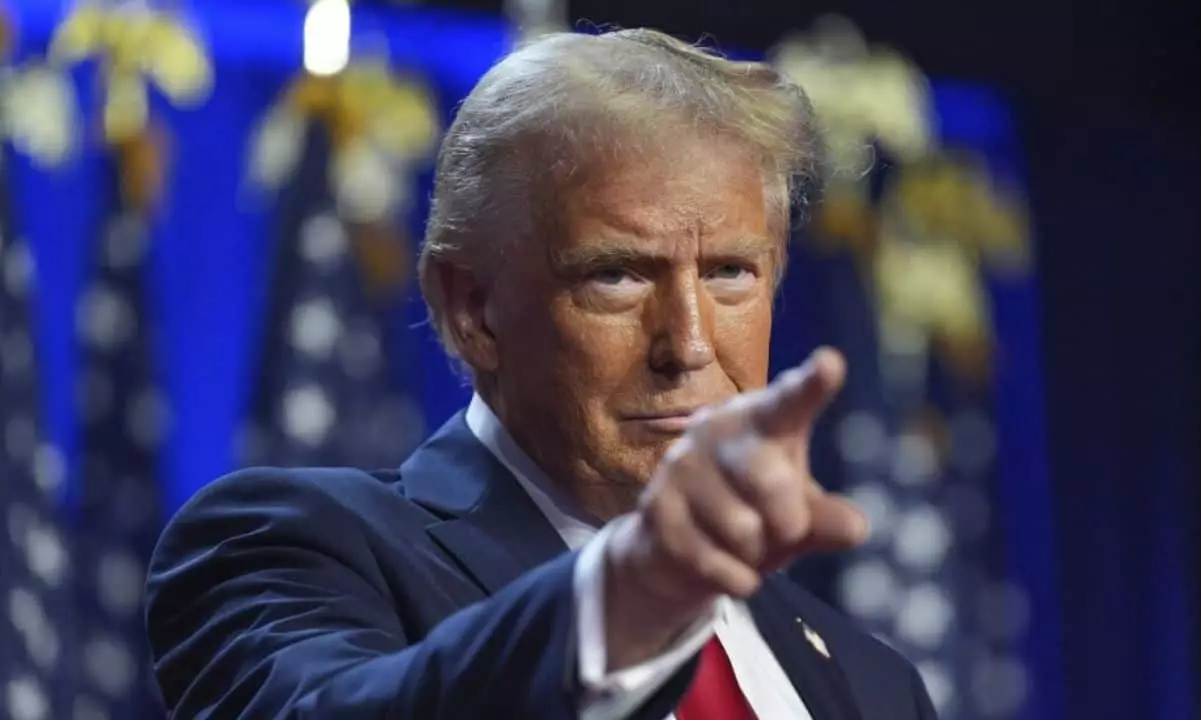The recent United States presidential election marked a significant shift in the federal government’s approach to cryptocurrency, particularly with the victory of pro-crypto candidate Donald Trump. As he prepares to take office, discussions around potential regulatory frameworks and policy guidelines have ignited interest among investors, developers, and stakeholders within the cryptocurrency industry. Crypto enthusiasts are eager to explore the implications of a Trump administration on both Bitcoin and altcoins, which could usher in a transformative chapter for the digital asset market.
A quarterly analysis by Bybit, a renowned digital asset exchange, in conjunction with crypto research firm Blocks Scholes, reveals growing optimism in the digital currency sector. The report indicates that major players within the market anticipate a surge in institutional participation which could lead to more robust engagement with cryptocurrencies. The previous skepticism surrounding Trump’s views on blockchain technology has evolved into a pro-crypto stance, positioning him as an unexpected champion for digital assets, particularly Bitcoin.
Trump’s commitment to establishing a clearer regulatory framework suggests a move towards creating an environment where innovation can thrive. His claim to make the United States the ‘crypto capital of the world’ resonates with a fervent community eager for government support. If successful, it could mean substantial changes in how cryptocurrencies are perceived and integrated into the broader economy.
With his electoral win, incoming legislation focused on cryptocurrencies may gain traction, primarily due to a Republican majority in Congress. The political landscape appears ripe for revolutionary changes, particularly with proposed acts such as the Financial Innovation and Technology for the 21st Century Act (FIT21 Act). This bill aims to provide much-needed regulatory clarity, which would ideally support innovation and growth within the crypto sector.
Moreover, the Bybit report highlights how proactive engagement from crypto entities during the election has influenced legislative priorities. As pro-crypto lawmakers step into office, the likelihood of more favorable regulations significantly increases, further encouraging investment in digital currencies.
In addition to bolstering Bitcoin’s market position, Trump’s presidency may facilitate a renewed focus on altcoins and decentralized finance (DeFi) platforms. The previous administration’s cautious approach towards DeFi—marked by legal actions against decentralized entities—could shift dramatically. This potential shift may stimulate investor enthusiasm in various protocols and projects, leading to an influx of capital in sectors that have historically struggled with regulatory uncertainties.
Furthermore, with Bitcoin already gaining more than 47% post-election, traders are enthusiastic about the prospects for sustained upward momentum as the cryptocurrency approaches the crucial $100,000 benchmark. The combination of an accommodating regulatory environment and rejuvenated interest in the broader crypto sector presents an exciting opportunity for growth.
Donald Trump’s imminent presidency is anticipated to play a pivotal role in shaping the future trajectory of cryptocurrencies in America. With a potential recalibration of regulatory approaches and increased institutional participation, the next few years could see unprecedented developments. The crypto community waits with bated breath, hoping for a robust embrace of innovation and investment that could solidify America’s standing in the global digital asset arena.

